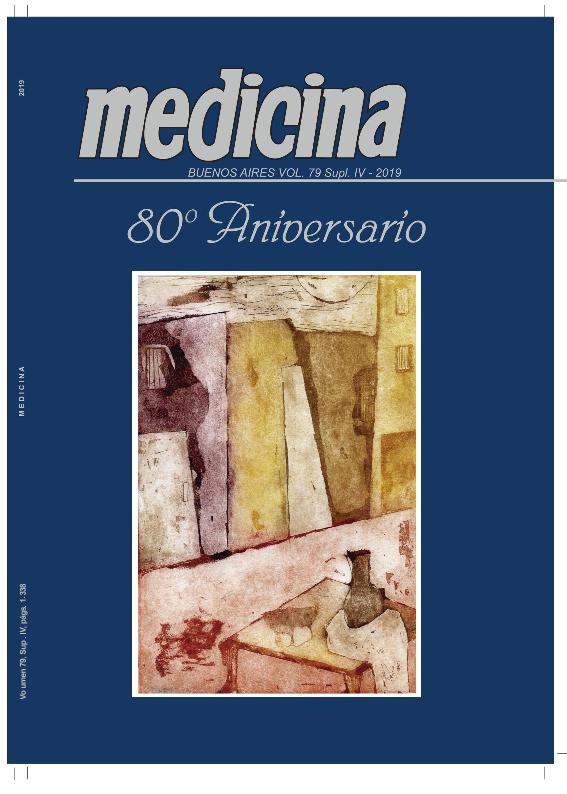Evento
Integrin-mechanosignaling role in small GTPases activation and cancer
Colo, Georgina Pamela ; Fernández Chávez, Lucía
; Fernández Chávez, Lucía ; Schweitzer, Karen
; Schweitzer, Karen ; Barrera Lamas, Nazarena; Gandini, Norberto Ariel
; Barrera Lamas, Nazarena; Gandini, Norberto Ariel ; Alonso, Exequiel Gonzalo
; Alonso, Exequiel Gonzalo ; Mascaró, Marilina
; Mascaró, Marilina ; Pichel, Pamela; Recio, Sergio; Fässler, Reinhard; Facchinetti, Maria Marta
; Pichel, Pamela; Recio, Sergio; Fässler, Reinhard; Facchinetti, Maria Marta ; Curino, Alejandro Carlos
; Curino, Alejandro Carlos
 ; Fernández Chávez, Lucía
; Fernández Chávez, Lucía ; Schweitzer, Karen
; Schweitzer, Karen ; Barrera Lamas, Nazarena; Gandini, Norberto Ariel
; Barrera Lamas, Nazarena; Gandini, Norberto Ariel ; Alonso, Exequiel Gonzalo
; Alonso, Exequiel Gonzalo ; Mascaró, Marilina
; Mascaró, Marilina ; Pichel, Pamela; Recio, Sergio; Fässler, Reinhard; Facchinetti, Maria Marta
; Pichel, Pamela; Recio, Sergio; Fässler, Reinhard; Facchinetti, Maria Marta ; Curino, Alejandro Carlos
; Curino, Alejandro Carlos
Colaboradores:
Kotsias, Basilio Aristides ; de Vito, Eduardo
; de Vito, Eduardo ; Narvaiz Kantor, Isabel; Semeniuk, Guillermo Basilio
; Narvaiz Kantor, Isabel; Semeniuk, Guillermo Basilio
 ; de Vito, Eduardo
; de Vito, Eduardo ; Narvaiz Kantor, Isabel; Semeniuk, Guillermo Basilio
; Narvaiz Kantor, Isabel; Semeniuk, Guillermo Basilio
Tipo del evento:
Reunión
Nombre del evento:
LXIV Reunión Anual de la Sociedad Argentina de Investigación Clínica; LI Reunión Anual de la Asociación Argentina de Farmacología Experimenta; XXI Reunión Anual de la Sociedad Argentina de Biología; XXXI Reunión Anual de la Sociedad Argentina de Protozoología; IX Reunión Anual de la Asociación Argentina de Nanomedicinas y VI Reunión Científica Regional de la Asociación Argentina de Ciencia y Tecnología de Animales de Laboratorio
Fecha del evento:
13/11/2019
Institución Organizadora:
Sociedad Argentina de Investigación Clínica;
Asociación Argentina de Farmacología Experimental;
Sociedad Argentina de Biología;
Sociedad Argentina de Protozoología;
Asociación Argentina de Nanomedicinas;
Asociación Argentina de Ciencia y Tecnología de Animales de Laboratorio;
The Histochemical Society;
Título de la revista:
Medicina (Buenos Aires)
Editorial:
Fundación Revista Medicina
ISSN:
0025-7680
e-ISSN:
1669-9106
Idioma:
Inglés
Clasificación temática:
Resumen
The ability of cells to adhere and simultaneously probe their mechanical environment is central to many physiological and pathological processes. Extracellular matrix sensing and mechanotransduction are mediated by the integrin family of cell adhesion receptors. Using genetically engineered cells, we studied the specific fibronectin integrin binding signaling and its role in tumor development. We observed that a5ß1-integrins promoted the formation of small adhesions, low RhoA activation and high force, while aß3-expressing cells showed large adhesions, thick stress fibers, high RhoA activation and low force. To further analyse these cellular phenotypes, we looked for specific RhoA activators (GEFs). For this purpose, we performed Mass Spectrometry (MS) analysis follow by biochemical assays and observed that GEF-H1 activation is aVß3-integrin dependent. Furthermore, using integrin-tail pull-down and MS assay, we observed that GEF-H1 binds to ß3-tail, suggesting that specific integrins may activate different Rho-GEFs during tumor progression. In order to study the role of GEF-H1 in cancer, we analysed by immunohistochemistry GEF-H1 expression in human biopsies. We observed overexpression of GEF-H1 in breast (p= 0.0053, n= 61) and thyroid (p= 0.0006, n= 32) tumor biopsies compared with normal tissue. Similar results were obtained in cancer cell lines (CCL). To further study the role of GEF-H1 in tumor development using CRISPR/Cas9 technology, we generated GEF-H1-knock out (KO) clones in a murine invasive breast CCL. We observed a decrease in the proliferation, migration and invasion rates (p<0.001) in GEF-H1-KO cells. These results showed that GEF-H1-RhoA activation is aVß3-integrin dependent and that may mediate the signaling involved in controlling cell structure, force generation, proliferation, migration and invasion of breast cancer cells. In addition, the studies in human tumor samples suggest that GEF-H1 might be a molecular biomarker in cancer.
Palabras clave:
GEF-H1
,
mechanosignaling
,
thyroid cancer
,
breast cancer
Archivos asociados
Licencia
Identificadores
Colecciones
Eventos(INIBIBB)
Eventos de INST.DE INVEST.BIOQUIMICAS BAHIA BLANCA (I)
Eventos de INST.DE INVEST.BIOQUIMICAS BAHIA BLANCA (I)
Citación
Integrin-mechanosignaling role in small GTPases activation and cancer; LXIV Reunión Anual de la Sociedad Argentina de Investigación Clínica; LI Reunión Anual de la Asociación Argentina de Farmacología Experimenta; XXI Reunión Anual de la Sociedad Argentina de Biología; XXXI Reunión Anual de la Sociedad Argentina de Protozoología; IX Reunión Anual de la Asociación Argentina de Nanomedicinas y VI Reunión Científica Regional de la Asociación Argentina de Ciencia y Tecnología de Animales de Laboratorio; Mar del Plata; Argentina; 2019; 59-59
Compartir



